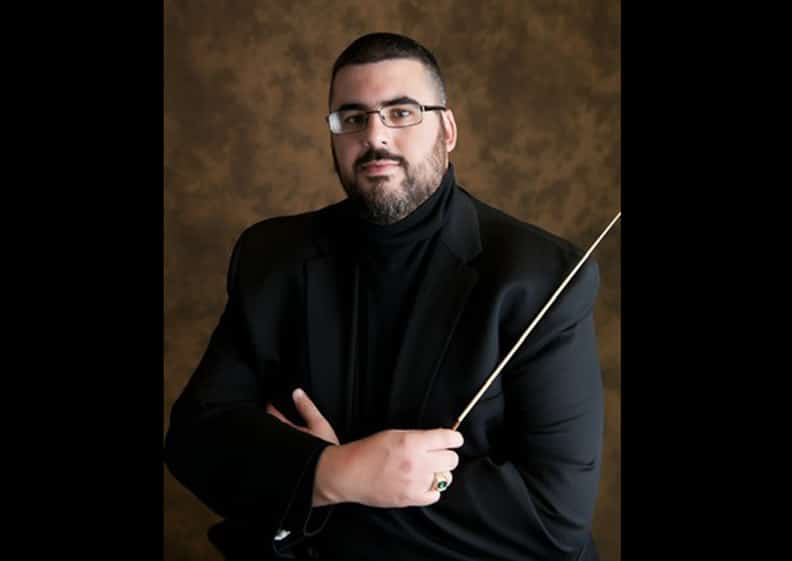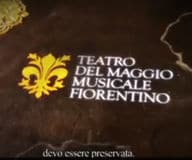Temirkanov gives up on modern opera productions
mainThe conductor of the St Petersburg Symphony, and former chief of the Mariinsky, says he won’t conduct any more new productions.
‘I’m too old for compromises,’ he told a press conference in Russia. ‘Boyars in Red Army uniforms, Don Jose on a motorbike – all irrelevant to the classics.’






It´s a loss to opera world,yes.But he´s absolutely right.The score in modern opera productions mostly is an ill fitting soundtrack to some contorted preposterous nonsense which serves only the self promotion of the so called director with a little help from his friends of the press.Of course,under those circumstances,a valuable musically satiisfying performance is impossible.
More power to him. About time to see more famous conductors stand up to this nonsense.
Since when is this provincial coot a “famous conductor?”
Since before you were born. Wise up, or get off the site. You’re being a pest.
Well said, Norman.
I heard this ‘provincial coot’ several times with the LA Philharmonic and he was very impressive. I remember hearing him in the Dorothy Chandler Pavilion with the storied Leningrad Philharmonic and was thrilled. I believe his work in the US dates back over forty years. He was a favorite in Philadelphia for a while and I believe he’s conducted most if not all the major US orchestras and those in Europe. He can be eccentric in his approaches to scores, but I find him pretty unbeatable in the Russian repertoire. Not a coot in my book.
I also saw Temirkanov with the Los Angeles Philharmonic in a program that included Debussy’s La Mer and the suite from Swan Lake around eight or nine years ago. The orchestra sounded quite good, but he sadly hasn’t been back since. In any case, I share his sentiments about modern opera productions — a precious few are creative, but most seem to be distracting and silly.
Don Jose on a motorbike, indeed.
Temirkanov is a great conductor, one of the greatest living actually.
Just common sense.
The ‘Regietheater’ fashion has become old hat, and respect for the original work of art is the only way left, which is already felt by opera houses here & there.
Following the original concept of an opera leaves enough space for directors and stage designers to impress their personal interpretation on the visual representation.
‘Regietheater’ resulted from postwar ideas that anything from the past would be incomprehensible to contemporary audiences, as if they were exclusively obsessed with their own modernity, like the stage directors themselves. As we know, the opposite has been true.
Chief of the St Petersburg Philharmonic, I think you’ll find…
In London we have had more than enough of this, particularly at the ENO: truly dire Fidelio, Fledermaus, Rigoletto to name but a few, utterly awful Julius Caesar a while before. Recently also an idiotic production of Idomeneo at Covent Garden, with universal and well-deserved boos for the production team. Updated productions can work perfectly well but it does need people who understand the music and the libretto, rather than just imposing their third-rate “concepts”.
Oh, you know, it’s only up to you to use arguments.
* postwar ideas that anything from the past would be incomprehensible to contemporary audiences, as if they were exclusively obsessed with their own modernity*
But this, in a nutshell, is the root cause of the falling audiences for classical music, be it recorded or live, symphony or opera. Obsession with their own modernity is just a high-falutin’ way of saying self-absorbed and under-exposed to other ideas. I was born far too late to grow up with Big Band music and crooners, but adults I knew spoke of Tommy Dorsey or Bing Crosby, etc. and, although raised in a classical rather than a jazz or pop household, I grew up at least aware of artists like these, and Ellington and Fitzgerald and the like.
Today’s youth thinks you are weird if you expect them to know who the Rolling Stones are, let alone Wagner. Even those with some classical exposure, it seems, can’t stand something done as it was originally meant to be done. It has to be done in idioms they “get.”
Had two funny experiences concerning so called “modern”opera productions last year:
1.:Two teenage girls ,complete with piercings,tattoos,and miniskirts coming out of a very “modern”production of La Traviata,obviously aimed and pandering at kids like them,Violetta being a prostitute in some red light district anywhere near you,full of sexual content,sado masochism,drugs,and…you name it.Girl1 asks girl2:”Did you like it?”Girl2:”Well actually,yes,but somehow the music the music was all wrong there”!
2.:My plumber,having a coffee after fixing some pipes for me:”You know,I don´t like opera”.Me:”Why?”.He:”I´ve been to 4 different operas this year,and all looked the same.People being dressed like you and me,almost nothing on stage,safe for some litter.When I go to the cinema and pay for Pirates of the Carribean,I don´t want to see Johnny Depp in jeans and hooded sweater.So why is that in opera?”
I think,both hit the nail on its head!
Shrewd plumber !!
Yes, awesome comments! They deserve all the publicity they can get.
Great comments. I’m sure there are many of the same kind.
This is the most absurd pretention of these people: who can imagine they seriously think a young person would ignore an Idomeneo in a “period” staging and run to see the Damiano Michieletto kind, played in a garbage dump.
As I told you before: you can use arguments, or you can turn this into… what you seem to be turning it into. Your choice.
But be careful: when you defend any cause with the kind of methods you seem to favour, some people begin to suspect there is something wrong with the cause itself.
So – they understand historical, or completely fantastical costumes, scenery and dramatic principles in, say, Game of Thrones, but a Traviata in crinoline is incomprehensible to them?
“Boyars in Red Army uniforms, Don Jose on a motorbike…” – if he thinks that constitutes dangerously avant-garde directorial interference, he has led a very sheltered operatic life.
Subscribe to comments.
I guess Temirkanov is unaware of Peter Gelb’s pronouncement that unless we promote these modern, tarted-up productions “Opera will die”.
“Old Man Yells at Cloud”
Temirkanov has conducted exactly four operas in the past four seasons, two of which he produced himself. So he is basing his comprehensive opinion of operatic performance practice on the production styles of Carmen at the Bolshoi and Trovatore in Parma. A more provincial point of view can scarcely be imagined. He might as well get his aesthetic ideas from his plumber.
Susan, he’s simply saying that he’s done conducting new productions for the reasons he sets out. No more, no less. Relax!
Smirking arrogance. That fact that he produced two of them himself shows he is willing to step up to the plate and do something about it. And Temirakov’s productions from the 70s and 80s remained in the repertoire of the Mariinsky Theatre for many years.
Hey, Trexel, here, you can heap your scorn on Peter Maxwell Davies, while you’re at it:
“When Peter Maxwell Davies wrote The Doctor of Myddfai in 1995, he proclaimed, “This is probably the last opera.” After decades of writing operas and music-theater pieces, the British composer had grown terminally frustrated with the shape his works took when they reached the stage. “You go to a performance of The Lighthouse.You’ve set it in a lighthouse — and the director sets it in a public toilet!” he explained in a recent phone conversation. “You write a thing called Cinderella for children, and it’s set in a swimming pool. Things are changed beyond recognition by the director. I was so fed up that I was just not going to write any more operas.”
… and where, Ms Trexel, do you get your aesthetic ideas from? Does the opening of Bieito’s Ballo in Maschera, with a dozen men sitting on toilets (presumably defecating) have some aesthetically illuminating purpose? One must presume that Bieito got his aesthetic I ideas in this scene from HIS plumber!!!!!
I wish more conductors would take a stand. I’m not against all “Regie” productions but so many of them have are replete with tiresome cliches, and resort to all-too predictable strategies and devices. Blessed are the symphonic, chamber and instrumental repertoires for they are all-but immune to this garbage.